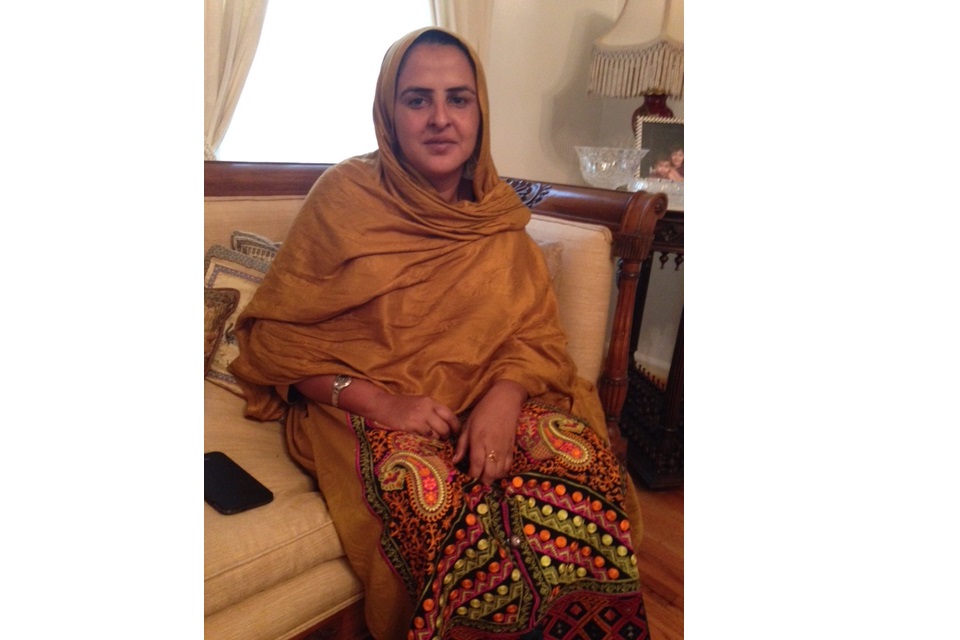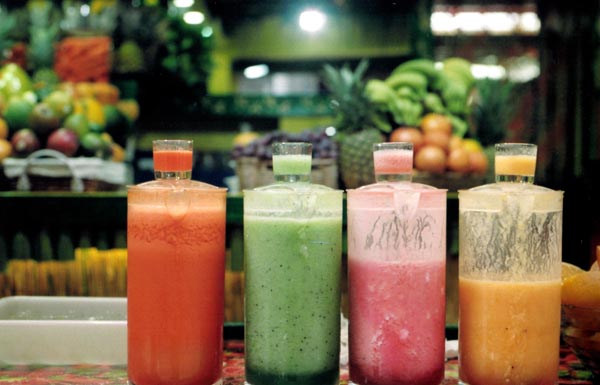People amaze me. With their strength; their courage; their resilience; their tenacity; their compassion. I think there’s nothing more powerful or empowering than feeling inspired by the personal story of another – learning from their struggles and triumphs, gaining strength from their patience and determination, feeling emboldened by their resolve and commitment. As a writer of personal stories, and as Chief Inspiration Officer of MoverMoms, I have the privilege of learning people’s stories and sharing them with others — from a man at a homeless shelter, a former mayor of an African town, writing a book to encourage young people to dream big; to hundreds of girls in remote villages in Pakistan and India clutching their pencils as tight as their dreams; to Nobel Peace prize winners starting a movement by planting a seed or raising their voice.
Please share your stories too, of people of all faiths, who you’ve met and felt inspired by; write a comment on the blog, Facebook page, or email me at salmahasanali@yahoo.com. You can follow the blog by subscribing at “30days30deeds.com” or liking the Facebook page.
Ramadan Mubarak.
Many of you know the story of Mukhtar Mai, one of my personal heroes.
In 2002, Mukhtar, a Pakistani village woman, was brutally gang raped by four men of a powerful neighboring tribe, on the order of a local council; the attack was said to be punishment for an alleged affair that her young brother had with a girl from another tribe. To humiliate her further, Mukhtar was forced to walk home, nearly naked, as villagers looked on. People expected her to commit suicide; she thought about it. But instead, Mukhtar took the rapists to court. Initially, six men were sentenced to death for the rape. Then in 2011, the Pakistan Supreme Court overturned all but one of the convictions and the men were freed; they continue to live in her neighboring village.
I first met Mukhtar seven years ago when she was in Washington, D.C. for a Vital Voices event. I was asked to be her translator when she was invited to speak with Hillary Clinton at the inaugural Women in the World Summit in 2010; unfortunately she had to cancel at the last minute due to illness. In April we had the chance to meet again when she was in town for a Developments in Literacy (DIL) fundraiser.
She smiles when she greets me, remembering that we had met before; she laughs as she shares some of her stories; but it’s her eyes – her eyes can’t hide the unfathomable pain that she’s endured. Her voice is soft, I sit right beside her to hear her. She seems timid, a bit withdrawn. But Mukhtar Mai has the courage of a warrior, and a voice that has challenged centuries of brutality and injustice against women.
We talk about her typical day, her schools, her children, life for women in Pakistan, her fears, her dreams, who inspires her, what makes her so strong.
“Allah jin sey kaam laina hota hey, leta hey,” (loosely translated, ‘God chooses certain people to do certain things’).
Mukhtar runs the Mukhtar Mai Women’s Organisation. It includes a resource center, which deals with 500 cases of violence against women each year, and includes legal support, a hotline and a mobile emergency unit; a shelter, which started in Mukhtar’s bedroom with women sleeping beside her; and two schools, which provide free education, books, uniforms and supplies; the schools are for both girls and boys until primary, and for girls until high school.
In 2003, she used funds she won from her case to start a school for girls, the first in her village. Illiterate herself, she understood that only education could bring about change. She laid the bricks with her own hands, she tells me proudly, and enrolled herself as her first student; she made it through primary school, she laughs, then got too busy running her organization. Now the school has 700 children; the second in a neighboring village has 300.
People used to slam the door in her face when she tried to encourage families to send their daughters to her school; now their only wish is for their girls to attend. “If they miss the bus, the parents themselves bring their daughters to school. One way or another, they have understood that girls should get an education,” she says smiling. Visiting the schools is the brightest part of Mukhtar’s day. The kids crowd around her, they all want to shake her hand; sometimes three hands hold on to hers, she says smiling. “The kids love me; the children are very happy at school. And we feel the same way. We consider them our own kids.”
The children of her rapists attend her school too.
Mukhtar got married in 2009, and has two kids of her own, a daughter who is almost five and a son who is three; she also adopted her sister’s daughter, 9. We share stories, and stresses, about our children. She fears for their security. “For myself I don’t worry; whatever happens to me will happen; I worry for my children.” She also worries that her kids are not taking school seriously; since it’s located next to their house and their mother is always there, they don’t see it as a place to study. Mothers’ worries are always the same – our children’s safety, well being, and education.
Her other big stress is funding for her schools; for the past six years, it’s been very difficult to get funds; DIL helps with some of the teacher salaries. “I’ve been so tense; I don’t want the schools to close down. I hope this mission continues.” She has faith that she will get through this difficult time too.
Mukhtar has big dreams, even if limited resources. “I want to open schools all over Pakistan,” she says, “wherever there isn’t a school.” She also wants to make a college for girls so they can continue studying. “One wishes for so many things, our dreams never stop. But what happens is what Allah wants to happen; if He wishes, then this will happen too.”
We talk about her case, and if things have gotten better for women in Pakistan. She’s frustrated that laws for women are made on paper, but not implemented. “If no one gets punished, there’s no justice. A country that does not have an effective justice system, that country will perish.” Maybe her kids will see justice, she says, even if she doesn’t. And adds, “Omeed pay dunya kaim hay,” (the world exists on hope). Hakumat mai nai, lekin Allah pey to hai (not in government, but [we have faith] in God).
I ask her what gives her so much strength. “First of all, Allah,” she says, “what Allah wants done, he enables it to happen.” She also gains courage from her mother; and from the support of all of us. “I know that the whole world’s duas are with me,” she says.
I set aside my notebook, hold her hands, and ask her how she’s really doing. She says, unconvincingly, that she’s ok, Allah ka shukr. Adding, “Aik cheez insan key andar ajai, phir wo jatee nahi” (one thing if it gets inside you, then it never leaves you). She hasn’t been able to sleep well in 13 years. “But you have to go on; you still have to laugh; no one likes someone who cries all the time. Zindagi to gozarnee hai” (You have to continue to go on with your life).
I assure her that she’s not alone, that we’re by her side; I tell her that I will share her story during Ramadan, and that we will give generously to make sure her schools stay open; I promise her that I will pray for her children, and ask her to pray for mine.
To learn more about Mukhtar Mai’s work and to donate to her efforts, please visit: http://www.mukhtarmai.org
[separator type=”thick”]






2 Comments